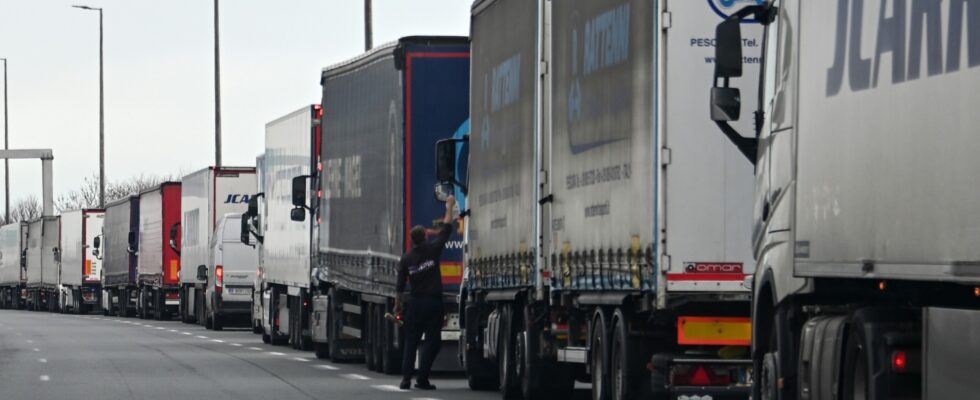These extendable trucks, carrying a container to which is added a trailer, are already authorized in certain countries such as Sweden or Finland and tested in others such as Germany. They are banned in France. The adopted text automatically authorizes between consenting neighboring states, which already accept them on their territory, the circulation of these giants measuring up to 25 meters and weighing up to 60 tonnes according to European standards.
This legislation, which will now have to be negotiated between member states, “opens the door to bigger polluters, particularly on our roads” and “kills rail freight”, not competitive enough to resist, worried French MEP Karima Delli (Europe Ecology).
The text increases the weight of zero-emission trucks to 44 tonnes compared to the current 40 tonnes.
She called on France to “make it clear that it does not want it” and to include it in its national law. By encouraging the rise of mega-trucks, “this opens a breach, we do not know what other governments could do”, agrees the French delegation of Renew (liberals). A majority of French MEPs opposed mega-trucks, but their amendments were rejected.
Originally, the revision of the rules on the weights and dimensions of trucks aims to encourage the development of zero-emission heavy goods vehicles, by allowing additional space to install battery or hydrogen cells.
The text increases the maximum weight of zero-emission trucks traveling between EU countries to 44 tonnes (compared to 40 currently). But diesel vehicles would also benefit from this increase until 2035, and could even weigh more if the States between which they circulate allow it for “intermodal” freight operations (combination of train/boat and road).
“The rules will create real incentives for businesses to go zero emissions”
“Extending the same advantage to polluting diesel trucks only accelerates their sales, by allowing them to transport more to the detriment of clean trucks,” lamented Bernardo Galantini, of the environmental NGO Transport&Environment.
The Spaniard Isabel Garcia Munoz (Social Democrats), rapporteur of the text, however assured that “the rules will create real incentives for companies to move to zero emissions and make road transport more sustainable and safer”.
She argues that “by transporting the same load with fewer vehicles and fewer trips, we can achieve significant reductions in carbon emissions. More than 50% of European freight is transported by road and heavy goods vehicles generate 6% of the EU’s total greenhouse gas emissions.
The European Council (member states) will adopt its position in June, and it will then be up to the next parliamentary assembly, elected after the June 2024 elections, to begin negotiations to finalize the text.
